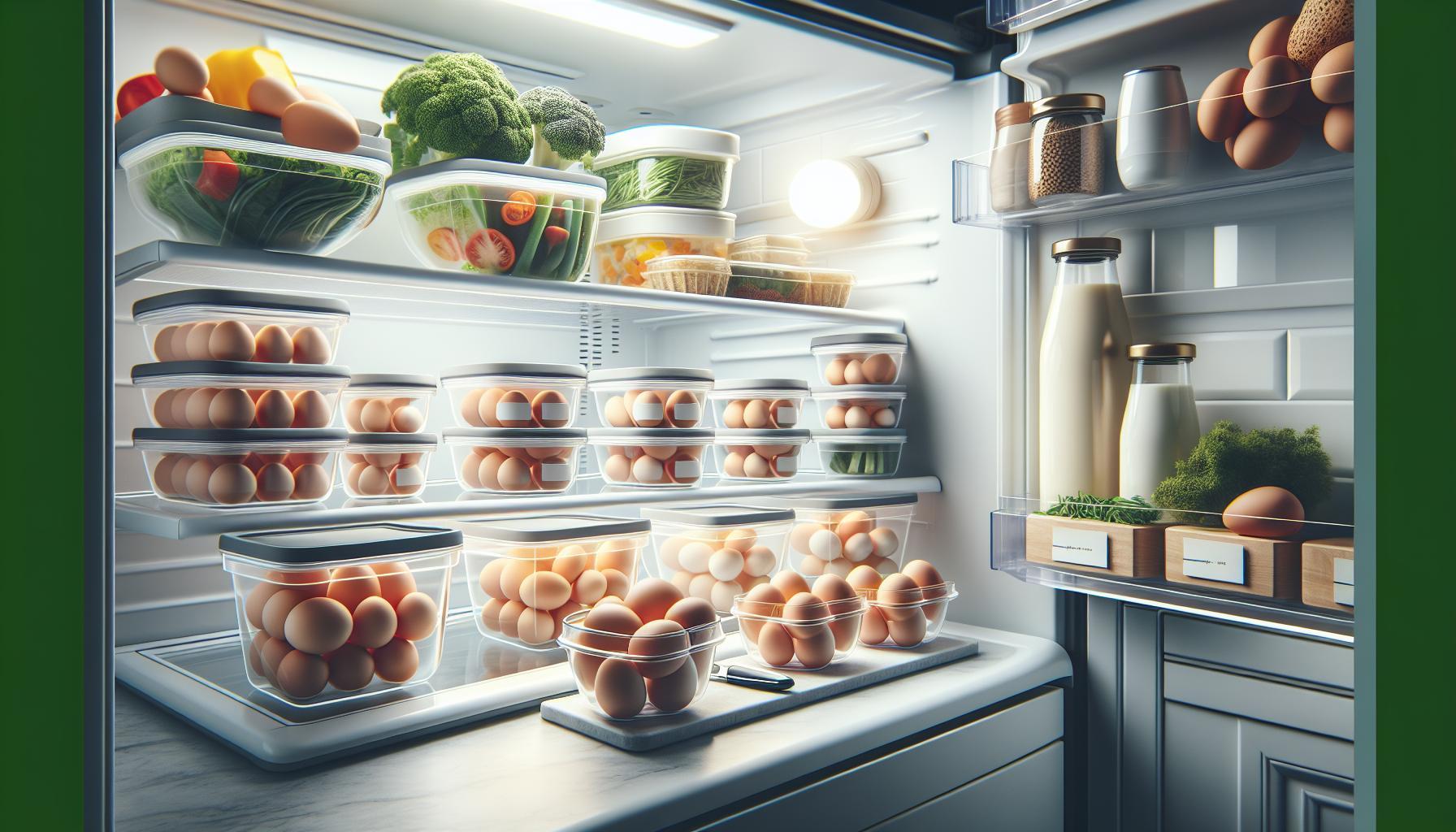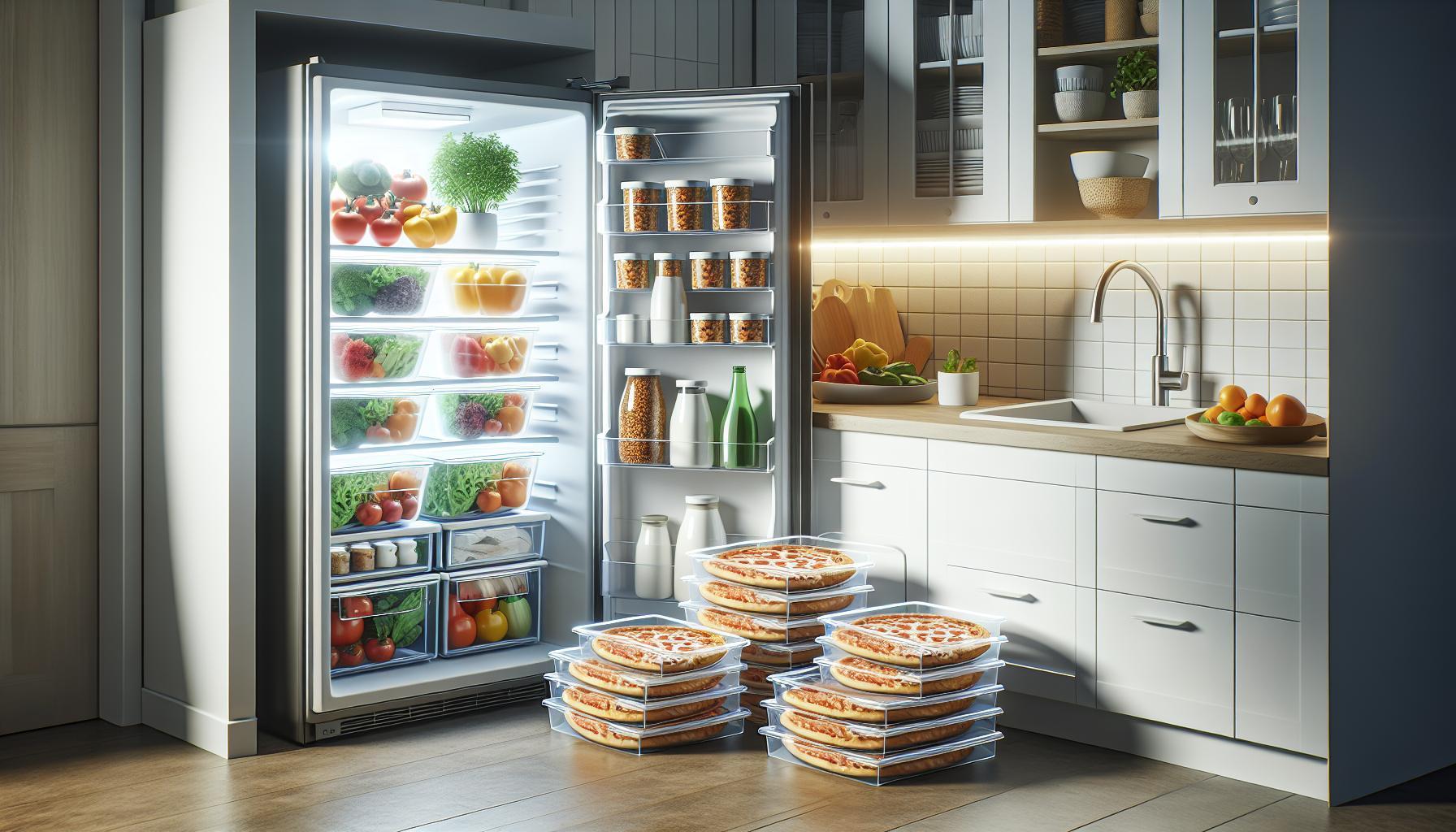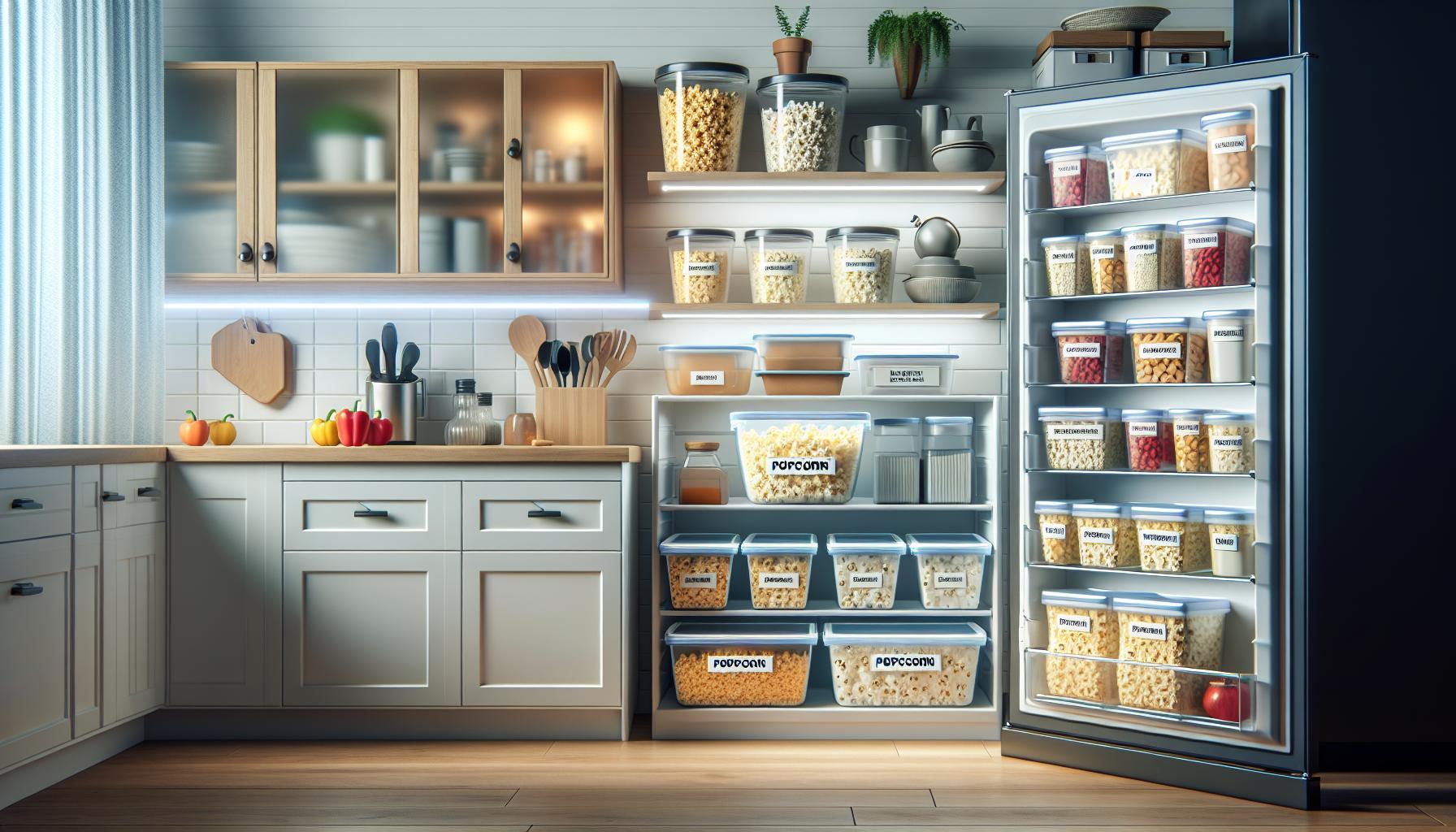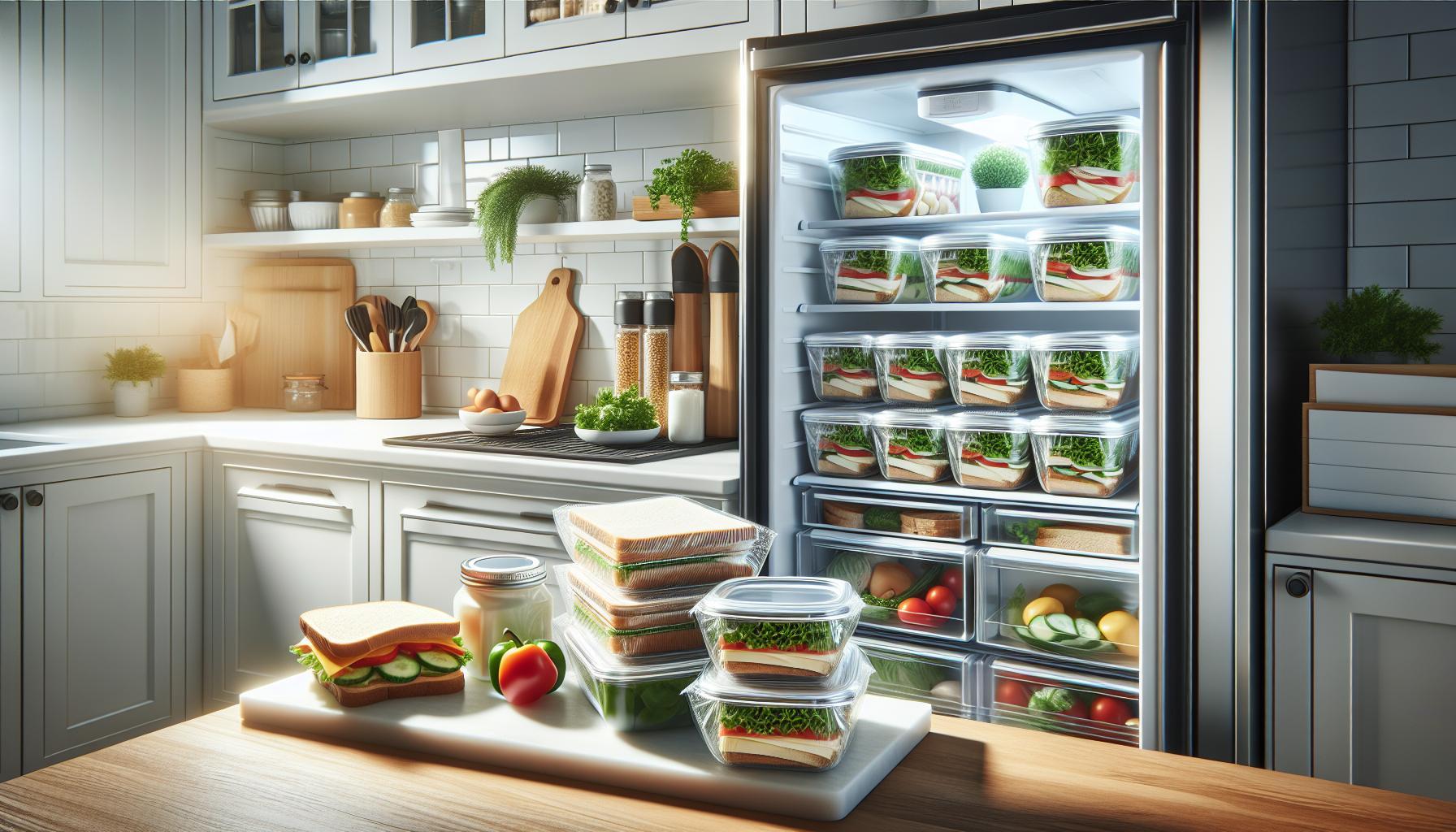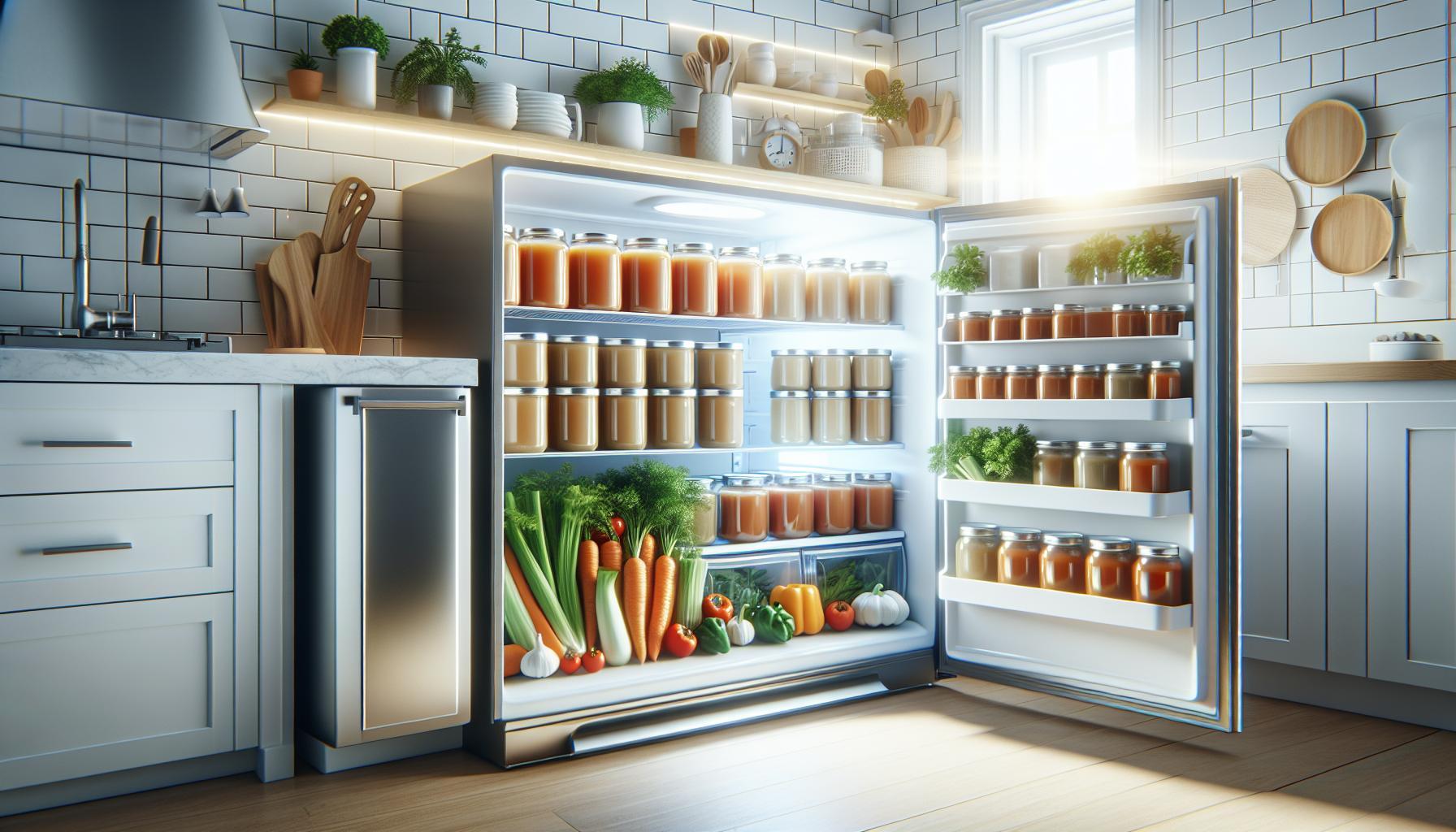Boiled eggs are a versatile snack, packed with protein and perfect for any meal. However, many people wonder: how long do boiled eggs last in the fridge? Understanding the proper storage and shelf life of boiled eggs is crucial for ensuring food safety and maximizing their freshness.
With a few simple guidelines, you can keep these nutritious bites readily available and worry-free. Properly stored, boiled eggs can last for up to one week in the refrigerator, making them an ideal choice for meal prepping and quick snacks. Not only will you save time during busy days, but you’ll also reduce food waste. Curious about the best storage practices and tips to ensure your boiled eggs remain delicious and safe to eat? Read on for essential advice that will help you make the most of this healthy food!
How Long Do Boil Eggs Last in the Fridge?
Boiled eggs are a fantastic source of protein and make for a quick snack or meal addition. When stored properly, they can last in the fridge for up to one week. This time frame is essential to ensure their safety and maintain their quality. The key is to store boiled eggs in the refrigerator promptly after cooking, ideally within two hours, to prevent bacterial growth.
To maximize freshness, keep the boiled eggs in their shells until you’re ready to eat them. The shell acts as a protective barrier against bacteria and odors in the fridge. If you’ve already peeled the eggs, place them in a sealed container submerged in water to prevent them from drying out. Be sure to change the water daily and consume them within a week.
Remember, while boiling eggs, starting with fresh eggs can also help in extending their shelf life. It’s a good practice to write the date on the container so you can easily track when they were made. If you’re unsure whether they are still good to eat, a simple sniff test or checking for a chalky texture can help you determine freshness. Always err on the side of caution-when in doubt, throw it out!
Signs Your Boiled Eggs Have Spoiled
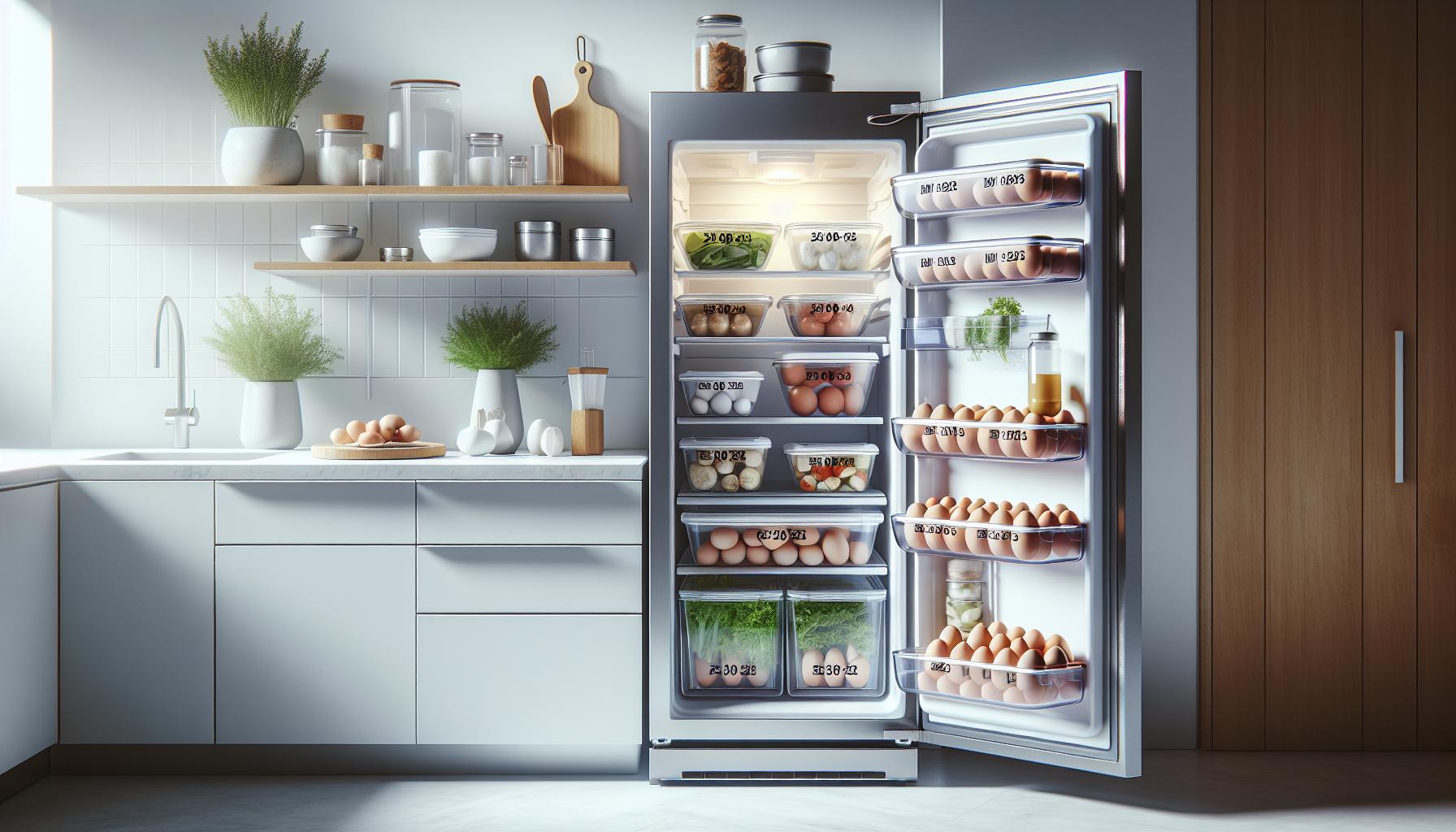
Determining the freshness of boiled eggs can be critical to your health and enjoyment. While boiled eggs are a convenient and nutritious snack, knowing how to identify whether they have spoiled is essential for safe consumption. Here are some key signs to look for.
First, consider the smell. Fresh boiled eggs have a neutral scent; however, if you detect a foul or sulfuric odor, it’s a clear indication that the eggs have gone bad. This smell can result from the presence of bacteria or off-gassing caused by spoilage.
Next, inspect the appearance of the eggs. After boiling and cooling, if you notice any unusual coloration on the eggshell or if the egg white appears discolored or slimy, it’s best to discard them. The presence of a chalky or gritty texture on the surface of the egg white can also indicate spoilage.
Finally, assess the shelf life. Even when stored properly in the refrigerator, boiled eggs should be consumed within one week. If you’ve marked the date of boiling and it exceeds this timeframe, it’s safer to toss them out. Always err on the side of caution; if you have any doubts about the egg’s safety, it’s advisable to discard it to prevent any foodborne illnesses. Trusting your senses and adhering to proper storage guidelines are your best defenses against consuming spoiled eggs.
Best Practices for Storing Boiled Eggs
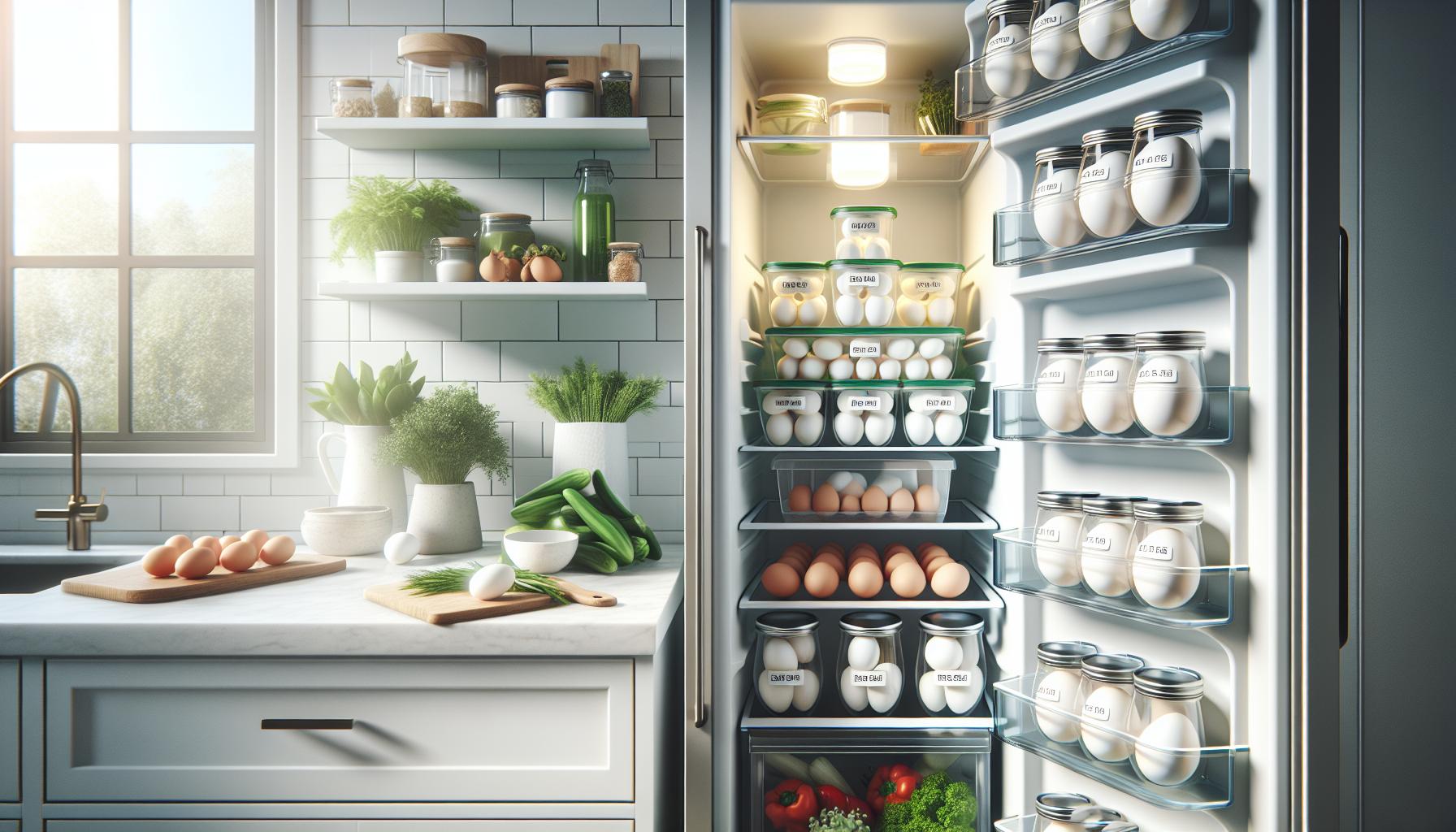
Proper storage of boiled eggs is essential for ensuring their longevity and safety, making them an excellent quick snack option. Here are the best practices you should follow to keep your boiled eggs fresh and delicious.
First and foremost, cool the eggs quickly after boiling. As soon as they are cooked, transfer them to an ice bath or run them under cold water for at least five minutes. This not only stops the cooking process but also helps them peel more easily later. Once cooled, it’s vital to store your boiled eggs correctly. Place them in a clean, airtight container to minimize exposure to air, which can lead to spoilage.
Refrigeration is key for extending the shelf life of boiled eggs. Store your airtight container in the coldest part of your refrigerator (usually at the back). If you’ve peeled the eggs, keep them submerged in cold water within the container, changing the water every couple of days to keep them fresh. Consider labeling the container with the boiling date as boiled eggs are best consumed within one week.
Finally, always inspect before consuming. Even with proper storage, it’s wise to examine the eggs for any off-putting odors or slimy textures, which could indicate spoilage. By following these guidelines, you not only ensure the safety of your boiled eggs but can also enjoy them as a healthy snack option whenever hunger strikes.
Can You Freeze Boiled Eggs?
While boiled eggs make for convenient and nutritious snacks, the question of whether you can freeze them often arises, especially when you’ve prepared more than you can consume in a week. The short answer is that while freezing boiled eggs is possible, it’s not advisable due to textural changes that occur after thawing. The proteins in the egg whites become rubbery and watery when frozen, which can significantly alter the eating experience.
If you still choose to freeze boiled eggs, the best method is to separate the yolks from the whites before freezing. You can freeze the yolks whole or mixed with a little salt or sugar, depending on whether you’ll be using them for savory or sweet dishes later. Place the yolks in an airtight container or freezer bag and label them with the date; they can last for up to three months. It’s vital to freeze them quickly after boiling to maintain their quality.
Egg whites, on the other hand, can also be frozen but are not recommended for standalone use after thawing due to their texture. They tend to become watery, making them better suited for incorporation into cooked dishes like casseroles or quiches. For best results, consider using the frozen eggs in recipes right after thawing rather than consuming them plain.
To thaw frozen boiled eggs, it’s best to transfer them to the refrigerator and allow them to thaw slowly. This method helps maintain some quality, although you should still expect a change in texture. Ultimately, while freezing can extend the shelf life of boiled egg components, consuming them fresh offers the best flavor and mouthfeel.
Recipes for Quick Snacks with Boiled Eggs
Boiled eggs are one of the most versatile and nutritious snacks you can keep on hand, making them perfect for those busy days when you need a quick and satisfying bite. Their rich protein content not only helps to keep you full, but they also offer a variety of flavor combinations and serving styles. Here are some simple, delicious recipes to help you transform your boiled eggs into delightful snacks.
Classic Deviled Eggs
Deviled eggs are a timeless favorite and incredibly easy to prepare. Simply cut boiled eggs in half, remove the yolks, and mix them with mayonnaise, mustard, a splash of vinegar, salt, and pepper. Spoon or pipe the mixture back into the egg whites, and garnish with paprika or fresh herbs for a touch of elegance. These can be made ahead of time and stored in the refrigerator for up to two days.
Egg Salad
For a quick and satisfying snack, whip up a classic egg salad. Chop boiled eggs and mix them with mayonnaise, diced celery, red onion, salt, and pepper. Serve it on whole grain bread, in lettuce wraps, or simply enjoy it on its own. This snack can also last in the fridge for about three to five days, making it an excellent option for meal prep.
Spicy Sriracha Eggs
For those who like a bit of heat, try coating your boiled eggs in a spicy Sriracha mix. Mash the yolks and combine them with mayonnaise and Sriracha sauce to your preferred spice level. Refill the whites and top with a sprinkle of sesame seeds or chopped green onions. These flavorful bites can be refrigerated for a couple of days and are fantastic for entertaining.
Pickled Eggs
If you’re looking for a unique snack, consider pickling your boiled eggs. Place boiled eggs in a jar and cover them with a mixture of vinegar, water, beet juice, and spices. Let them sit in the fridge for at least 24 hours (but up to a week for full flavor) before enjoying them. Pickled eggs can last for several weeks when stored properly in the refrigerator.
These recipes highlight the incredible flexibility of boiled eggs, allowing for a range of flavors and styles suited to any palate. Whether you’re in a hurry or planning a gathering, boiled eggs are an easy go-to that can be enjoyed in myriad ways. Just remember to keep your boiled eggs stored in a sealed container in the refrigerator, where they should remain fresh for up to one week.
Nutritional Benefits of Boiled Eggs
Boiled eggs are not just a convenient snack; they also pack a powerful nutritional punch. Each egg is an excellent source of high-quality protein, containing about 6 grams per large egg, making them ideal for muscle repair and overall health. Beyond protein, boiled eggs are rich in essential nutrients, including vitamins A, B2 (riboflavin), B12, D, and E, as well as minerals like phosphorus and selenium. These nutrients support everything from immune function to bone health.
One of the standout attributes of boiled eggs is their role in supporting a balanced diet. The healthy fats found in eggs, predominantly unsaturated fats, can facilitate the absorption of fat-soluble vitamins, such as vitamin D and E. The presence of choline is another remarkable aspect; this nutrient is vital for brain health, aiding in memory and cognitive function. In fact, one boiled egg provides nearly a quarter of the daily recommended intake of choline.
Incorporating boiled eggs into your meals can also promote satiety, helping to prevent overeating. Research has shown that protein-rich foods like eggs can keep blood sugar levels stable and control hunger hormones, potentially reducing the likelihood of snacking on less nutritious options throughout the day. This is particularly beneficial for those who are looking to maintain or lose weight while ensuring they receive adequate nutrition.
When considering food safety and storage, boiled eggs are incredibly user-friendly. In the refrigerator, they can last up to one week when stored properly in a sealed container, allowing you to reap their benefits throughout the week. By integrating boiled eggs into your diet, you not only enhance your nutrient intake but also add a delicious, versatile option that supports a healthy lifestyle.
Creative Ways to Use Leftover Boiled Eggs
Boiled eggs can transform your meals and snacks with minimal effort. If you find yourself with leftover boiled eggs, don’t let them go to waste-there are numerous creative and delicious ways to incorporate them into your diet. These versatile eggs can be used in salads, spreads, and even as a savory topping, elevating everyday dishes with their nutritional benefits.
One of the simplest ways to utilize leftover boiled eggs is by adding them to salads. Chop them up and mix them with greens, tomatoes, cucumbers, and your choice of dressing for a protein-packed meal. Egg salad is another classic choice; blend boiled eggs with mayonnaise, mustard, and spices to create a flavorful spread for sandwiches or snacks. Additionally, consider making a Nicoise salad, where boiled eggs serve as a key ingredient alongside tuna, green beans, and olives. Each of these options not only enhances flavor but also adds essential nutrients like protein and healthy fats.
For a quick and satisfying snack, you can mash boiled eggs and combine them with avocado for a creamy dip. Spread this mixture on whole-grain toast or whole-grain crackers for a healthy treat. Alternatively, try making deviled eggs-just slice boiled eggs in half, remove the yolks, and mix them with mustard, mayonnaise, and a dash of paprika before spooning the mixture back into the egg whites. This simple yet delicious dish offers a great way to use leftover eggs while impressing your guests with a classic appetizer.
Lastly, consider using boiled eggs as toppings for various dishes. For instance, slice them to top off your favorite grain bowls, stir them into ramen for added protein, or use them as a garnish for soups. The options are truly endless, making it easy to integrate leftover boiled eggs into your culinary repertoire in delightful and nutritious ways. Always remember to store any unused boiled eggs in an airtight container in the fridge, where they can last for up to one week, ensuring safety and freshness in all your meal preparations.
How to Peel Boiled Eggs Easily
Peeling boiled eggs can be a frustrating task, especially when the shells stubbornly cling to the egg whites. However, there are several effective methods to ensure that you peel your boiled eggs easily and cleanly, leaving you with perfect halves for salads, snacks, or embellishments.
One of the best strategies is to use older eggs. Fresh eggs tend to have a lower pH level, making them stick to the shell more. If possible, buy your eggs a week or two in advance before boiling them. When you’re ready to boil, start by placing the eggs in a pot and covering them with cold water. Bring the water to a rolling boil, then turn off the heat, cover the pot, and let the eggs sit for about 9 to 12 minutes, depending on how well done you like your yolks.
Once the eggs are cooked, transferring them immediately into an ice bath can work wonders. Fill a bowl with ice and water, then carefully place the hot eggs into the icy water. This step not only stops the cooking process but also helps the eggs contract slightly, creating space between the egg white and shell. Leave them in the ice bath for about 5 to 10 minutes, then crack the egg shells gently on a hard surface. Roll the eggs gently to loosen the shell, and begin peeling from the wider end where the air pocket is often located.
To make the peeling process even smoother, consider peeling the eggs under running water. This method can help wash away any small shell fragments and make it easier to slide the shell off. Additionally, if you encounter any particularly stubborn spots, you can use a small spoon to gently scoop under the shell and lift it away from the egg white.
By following these techniques, you’ll find that peeling boiled eggs becomes not only easier but also more enjoyable, allowing you to focus on creating delightful dishes with your perfectly cooked eggs.
Understanding Egg Expiry Dates
is crucial for ensuring food safety and maximizing the enjoyment of boiled eggs. While you might be tempted to rely solely on the sell-by date printed on the carton, actual egg freshness can extend much longer than that date suggests. Fresh eggs can typically be consumed within three to five weeks after purchase if stored properly in the refrigerator. However, for those who enjoy boiled eggs, understanding their longevity post-cooking is equally important.
Boiled eggs can remain safe to eat for up to one week when stored in the refrigerator. To maintain their freshness, keep them in their shells until you’re ready to consume them. This protective barrier slows down spoilage by limiting exposure to air and bacteria. Once peeled, it’s best to eat boiled eggs within a couple of days to avoid any quality degradation. Always store boiled eggs in a tightly sealed container to prevent moisture loss and contamination from other foods.
Checking for signs of spoilage is essential. A simple sniff test can indicate if an egg has gone bad. If the egg emits an unpleasant sulfur smell, it’s best to discard it. Additionally, conduct a visual inspection: if any discoloration or slimy texture is present, those eggs should not be consumed. To further clarify, here are some conditions that might guide your egg storage decisions:
- Uncooked eggs: Keep them in the refrigerator for three to five weeks.
- Boiled eggs: Store in the fridge for up to one week in their shells; consume within two days if peeled.
- Signs of spoilage: Bad odor, unusual color, or sliminess indicate the egg should be thrown away.
By understanding these aspects of egg expiry, you can make informed decisions that ensure both safety and taste, allowing you to enjoy your hard-boiled creations worry-free.
Safety Tips for Preparing Boiled Eggs
When it comes to enjoying boiled eggs safely, following proper food safety practices is essential. The process of boiling may seem straightforward, but various factors can influence the safety and quality of your eggs. To ensure that every boiled egg you prepare is both delicious and safe to eat, consider these important safety tips.
First, always start with fresh eggs. Before boiling, check the sell-by and expiration dates on the carton. Fresh eggs typically last for three to five weeks in the refrigerator, but a quick test can help confirm their freshness: place the eggs in a bowl of water; fresh eggs will sink, while older eggs will float. Once you’ve selected the freshest eggs, handle them carefully to avoid cracks, which can introduce bacteria.
Boiling Process
When boiling eggs, it’s crucial to ensure they reach a safe internal temperature. The USDA recommends boiling eggs for at least 9-12 minutes, depending on the desired level of doneness. A rolling boil should be maintained, and once cooked, promptly transfer the eggs to an ice bath. This stops the cooking process and makes peeling easier later.
Storage Tips
After boiling, proper storage is vital. Once cooled, store the eggs in their shells within a covered container in the refrigerator. This not only keeps them fresh for up to one week but also protects them from absorbing odors from other foods. If peeled, consume them within two days, and always keep them in a sealed container to maintain quality and safety.
By adhering to these guidelines-starting with fresh eggs, ensuring proper cooking times, and following safe storage practices-you can enjoy boiled eggs as nutritious snacks without worry. Whether for breakfast, a quick snack, or an ingredient in various dishes, keeping safety in mind will help you fully appreciate the benefits of this versatile food.
Comparing Hard-Boiled vs. Soft-Boiled Eggs
When it comes to boiled eggs, the debate between hard-boiled and soft-boiled varieties often sparks passionate discussions. Each method of boiling affects not only the texture and taste but also the versatility of the egg as a snack or in recipes. Hard-boiled eggs, cooked for about 9-12 minutes, yield a firm, fully set yolk and white, making them perfect for slicing into salads, incorporating into deviled eggs, or enjoying on their own as a protein-packed snack. In contrast, soft-boiled eggs require less cooking time, typically around 6-8 minutes, resulting in a creamy, runny yolk that can elevate dishes like ramen or toast.
Both styles have distinct storage life considerations. Hard-boiled eggs can safely last up to one week in the refrigerator when kept in their shells, thanks to their cooked state that limits bacterial growth. Soft-boiled eggs, however, with their softer texture and exposed interior, should ideally be consumed within two days to ensure safety and quality. The creamy yolk of a soft-boiled egg, although delightful when fresh, can spoil more quickly and should not be stored in the refrigerator for extended periods.
When deciding which type to prepare, consider not only your taste preferences but also how you plan to use the eggs in your meals. For snacking or meal prep, hard-boiled eggs offer more versatility and a longer shelf life, while soft-boiled eggs can be a luxurious addition to brunch or gourmet dishes. Regardless of your choice, adhering to safe food storage practices will ensure that enjoying these boiled delights remains both delicious and safe.
Faq
Q: How can I tell if boiled eggs are safe to eat?
A: To determine if boiled eggs are safe to eat, check for unusual odors, discoloration, or slimy textures. If they exhibit any of these signs, discard them. Proper storage in the fridge can help maintain safety and freshness.
Q: Can peeled boiled eggs be stored in the fridge?
A: Yes, peeled boiled eggs can be stored in the fridge. To maintain freshness, place them in a bowl of water, covering the eggs fully, and then seal the bowl with plastic wrap. Change the water daily to keep them fresh for up to a week.
Q: How long can boiled eggs be left out at room temperature?
A: Boiled eggs should not be left out at room temperature for more than two hours. After that time, bacteria can grow rapidly, increasing the risk of foodborne illness. For best practices, refrigerate leftovers promptly.
Q: Do boiled eggs lose nutritional value over time?
A: Boiled eggs do not significantly lose nutritional value over time when stored properly in the fridge. However, their texture and flavor may degrade, so it’s best to consume them within a week for optimal taste and quality.
Q: Can I reheat boiled eggs?
A: Yes, you can reheat boiled eggs, but it’s best to heat them gently to avoid a rubbery texture. You can do this by placing them in hot water for a few minutes or using a microwave with caution. Always peel them first for even heating.
Q: What are the best practices for hard-boiling eggs?
A: The best practices for hard-boiling eggs include placing them in cold water, bringing it to a boil, then reducing heat and simmering for about 10-12 minutes. After boiling, transfer them to an ice bath to halt cooking and make peeling easier.
Q: How should I store leftover egg salad?
A: Store leftover egg salad in an airtight container and refrigerate it promptly. Consume it within 3-5 days for the best taste and safety. If it contains mayonnaise, ensure it’s kept at the right temperature to avoid spoilage.
Q: What should I do with boiled eggs that have a green ring around the yolk?
A: A green ring around the yolk indicates a chemical reaction from overcooking. While it’s safe to eat, it may affect the flavor. To avoid this, reduce cooking time and cool the eggs quickly after boiling.
In Conclusion
Now that you know how long boiled eggs last in the fridge, you can enjoy this nutritious snack without worrying about freshness. Remember, keeping your eggs stored properly not only ensures safety but also maximizes their deliciousness. For more tips on food storage safety, check out our articles on “How to Store Hard-Boiled Eggs” and “5 Easy Snacks to Make with Eggs.”
Don’t let those perfectly boiled eggs go to waste-start incorporating them into your meals today! For even more kitchen tips, consider signing up for our newsletter to receive the latest recipes and food storage guidelines directly to your inbox. Join the conversation by sharing your favorite ways to use boiled eggs in the comments below. Your next culinary adventure is just a click away-let’s continue exploring together!

